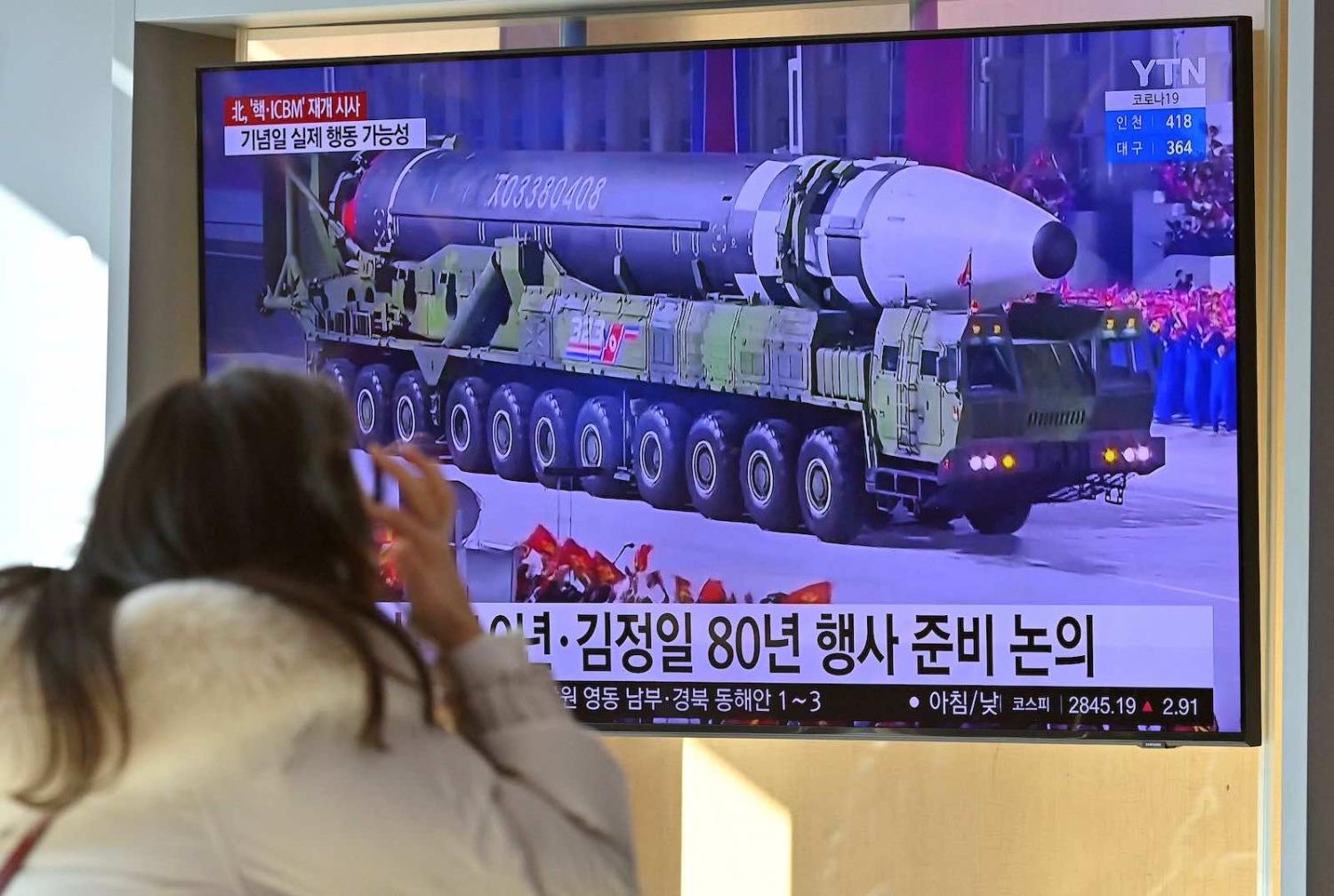Do South Koreans view North Korea’s nuclear weapons as a threat? In addition to North Korea ratcheting up missile tests this year, including the first by an intercontinental ballistic missile since 2017, there has also been an increase in aggressive rhetoric from Kim Yo-jong, sister to North Korean leader Kim Jong-un. These statements came right on the heels of South Korean President-elect Yoon Suk-yeol’s spokesperson reiterating the administration’s options regarding a first strike.
With tensions rising, one would assume that South Koreans would be concerned about heightened conflict. However, this assumes two conditions. First, it assumes that the South Korean public pays much attention to North Korea, which previous survey work questions. Second, it assumes that South Koreans view North Korea’s nuclear weapons as offence-oriented.
North Korean officials certainly know that the likelihood of resuming inter-Korean dialogue has diminished with Yoon’s election.
Yet, despite North Korea’s history of bellicose rhetoric, which in 2017 seemed to be leading towards war with the United States, many analysts assume that North Korea’s intentions behind their nuclear weapons program is security oriented as it provides a major deterrent from invasion.
North Korean officials certainly know that the likelihood of resuming inter-Korean dialogue, as desired by the Moon Jae-in administration hopeful of a peace treaty, has diminished with Yoon’s election. However, there are various reasons to assume that even if relations further sour under Yoon, North Korea is unlikely to use its nuclear weapons towards them. For example, North Korea already possesses the ability to inflict heavy damage on Seoul with non-nuclear artillery.
That said, North Korea’s brinkmanship strategies do not preclude the use of nuclear weapons here or elsewhere, especially if seen as necessary for regime survival. North Korean officials certainly know that the likelihood of resuming inter-Korean dialogue, as desired by the Moon Jae-in administration hopeful of a peace treaty, have diminished with Yoon’s election. Polls have shown the South Korean public increasingly supports the country acquiring nuclear weapons itself.
Whether South Koreans view North Korea’s nuclear capabilities as defensive or offensive has policy implications. If viewed as defensive, the public is unlikely to be concerned about their use and unlikely to demand additional pressure put on North Korea. If viewed as offensive, the public is likely to be supportive of a more hawkish approach from the Yoon administration, wanting preconditions to any dialogue, and may be supportive of enhancing South Korea’s military capabilities. Thus, Yoon’s policy on North Korea will likely be dependent not only upon North Korea’s military actions, but also South Korean public perceptions of any actions.
To assess how South Koreans view the North’s nuclear weapons, we conducted an original web survey of 1107 South Koreans across 11–16 March 2022 using gender, age, and regional quota sampling, and administered by Macromill Embrain.
We asked: “Do you believe that North Korea developed nuclear weapons for defensive or offensive purposes?” We found that a majority (57.8%) of respondents view the weapons as offensive, although we found clear distinctions between the supporters of the liberal Democratic Party (DP) and conservative People Power Party (PPP). For the DP supporters, a majority (55.3%) see the weapons as serving defensive purposes, while an even larger share of PPP supporters view them as offensive-oriented (70.5%). Admittedly, we did not ask respondents why they viewed the weapons as defensive versus offensive, however the results suggest a divergence in underlying views about the regime and may be an obstacle for the Yoon administration’s more “hawkish” agenda if desiring broad consensus on North Korea.
Views on the nature of North Korea’s nuclear program also seem to influence broad views of North Korea. For example, 68.4% of those respondents who saw the program as offensive viewed relations between the two Koreas as negative, compared to only 51.8% of those who saw nuclear weapons as defensive. When asked to rate on a ten-point scale how concerned they are that North Korea will use military force against South Korea, we saw roughly a point difference on average between those viewing the program as defensive versus offensive (4.2 vs. 5.2). Moreover, we found that, after controlling for demographic factors (age, gender, income, education) and partisan identification, similar patterns endure.
What are the implications of partisan divergence on views of North Korea, especially regarding its nuclear program? Public perceptions of North Korea’s nuclear program are illustrative of the underlying issues of threat perceptions and empathising with North Korea’s constraints. Critics may claim that those who see the program as defensive-oriented have been fooled, while they themselves ignore how the program has likely deterred pre-emptive strikes to date. In contrast, viewing the weapons as defensive ignores the regime’s bellicosity and belief that these weapons are their only remaining option.
If North Korea continues with missile launches and aggressive rhetoric, we are likely to see more public support for President-Elect Yoon’s desired hardline stance. In addition, we may see the administration framing actions as consistent with a public disenchanted with Moon-era engagement efforts. Alternatively, North Korean humanitarian needs may lead Yoon to continue open engagement without appearing to reward North Korea for bad behaviour.
Despite a hyper partisan climate during the South Korean election and existing partisan differences, the North Korean regime’s actions may inadvertently provide a catalyst for a vague policy consensus on approaches to Pyongyang between the Yoon administration and a DP-majority National Assembly. However, even if a vague consensus can be reached on policy, North Korea is unlikely to fundamentally change its rhetoric or military posturing in the short term.

